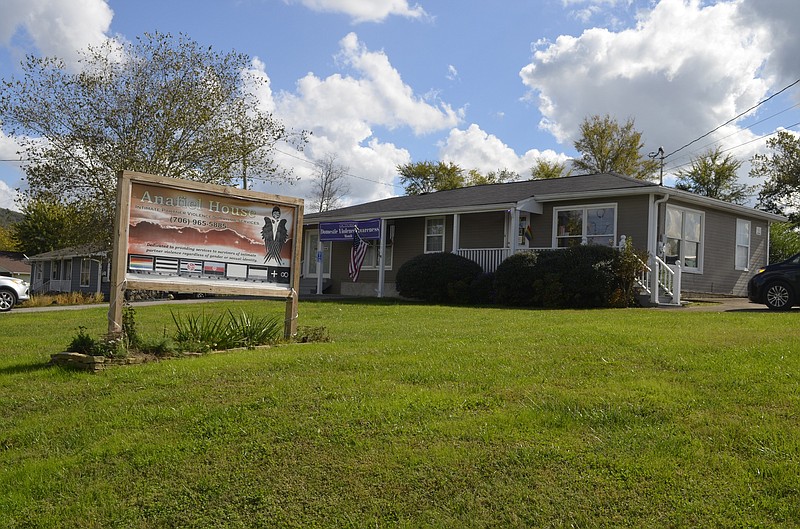Throughout the past month, purple lights have illuminated the porch at Anafiel House in Ringgold, Georgia, as a reminder that October is Domestic Violence Awareness Month.
In a time when the ongoing COVID-19 pandemic has people spending more time at home than usual, it is especially important for people who may be in an abusive situation to be aware that resources are available to them.
According to a comparison of crime reports from March 2019 and March 2020, domestic violence was already up 24% in Chattanooga and 89% across Hamilton County during the first month of the pandemic, and experts warned the number of reports would only continue to rise the longer the crisis lasts.
Once a person who has experienced intimate partner violence leaves a shelter, they often return to their abuser because they feel they don't have the resources to live independently, said Mark Warner, who started Anafiel House in 2018 to provide victims of intimate partner violence with services to help them successfully get on with their lives.
Nearly half of women who have experienced domestic violence are abused again, either by their original abuser or someone new, Warner said.
Anafiel House offers services that help victims get back on their feet after leaving a shelter, such as assistance finding a place to live or help getting the education they need to find a better job.
"We want to give people a firm base so they don't go back to an abuser," Warner said.
While Anafiel has seen an increase in the number of people requesting help since the pandemic began, client care representative Rhonda Cook said the main issue she's seen is a shortage of space in shelters due to social distancing requirements.
More information
Anafiel House is at 192 Lafayette St. in Ringgold, Ga., and can be reached at 706-965-5885 or anafielhousecontact@gmail.com. Visit the organization’s website at anafielhouse.org.
Housing in general is more difficult to come by since the pandemic began, Warner said, but through the organization's resources they've been able to connect people who need housing with a place to rent, sometimes negotiating for a lower rent on their behalf.
Anafiel House recently acquired nonprofit status, and the group's plan is to ramp up fundraising efforts now that donations are tax-deductible. Previously Anafiel was funded almost exclusively by Warner and his wife.
The couple has no children and decided to start Anafiel House as a way to leave a legacy, he said. After helping a woman in their social circle leave a bad relationship, Warner was inspired to help others feeling isolated in abusive relationships become independent.
At age 48, he earned a master's degree in organizational psychology and founded Anafiel House.
He now hopes to raise funds to expand the organization's education services, as well as for a medical fund that would help clients cover the cost of treating the effects of psychological and physical trauma from abuse.
"A lot of people want to help us when they learn what we're doing," Warner said.
Anafiel is the name of an angel in Jewish lore, as well as the name of a character from author Jacqueline Carey's "Kushiel's Legacy" series. The character gives others skills to make them more powerful individuals - similar to what the organization tries to do with its clients, Warner said.
One major tenet of the organization is that services are offered to everyone, regardless of gender or sexual orientation. Once it's safe to get out and talk to the public, he said he hopes to provide more education regarding abuse in the LGBTQ community.
Warner said he knows of at least four people in the LGBTQ community who have experienced intimate partner violence who were turned away from shelters.
"Law enforcement tends to not take it seriously," he added. "But their relationships are just as strong and emotional as straight people."
Contact Emily Crisman at ecrisman@timesfreepress.com or follow her on Twitter @emcrisman.
